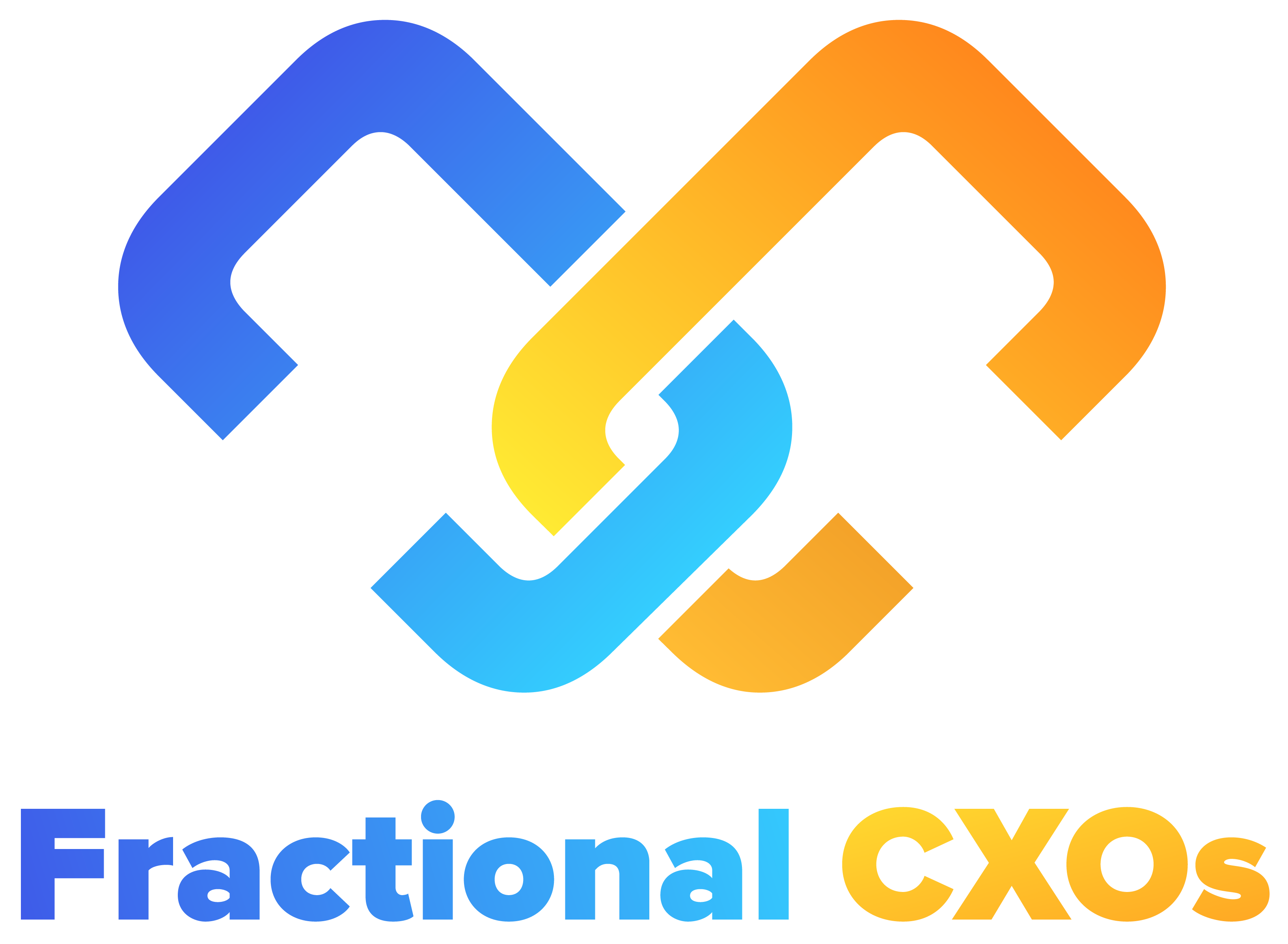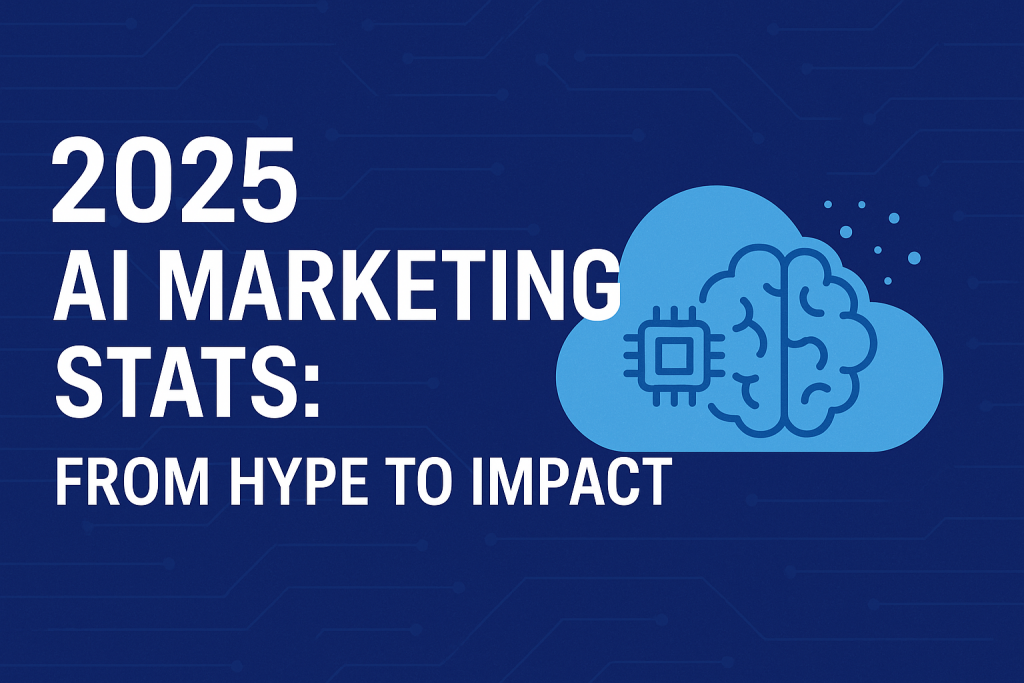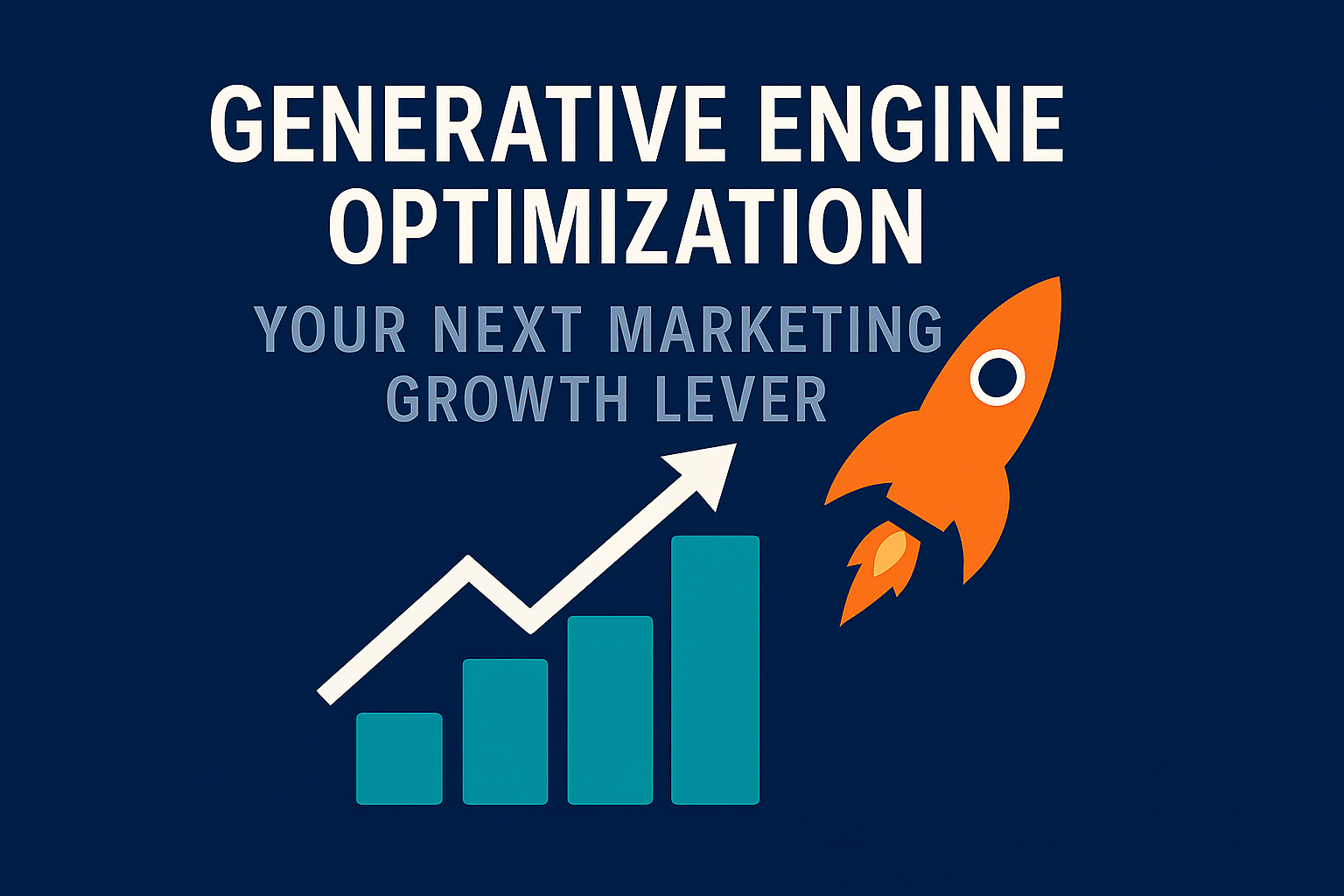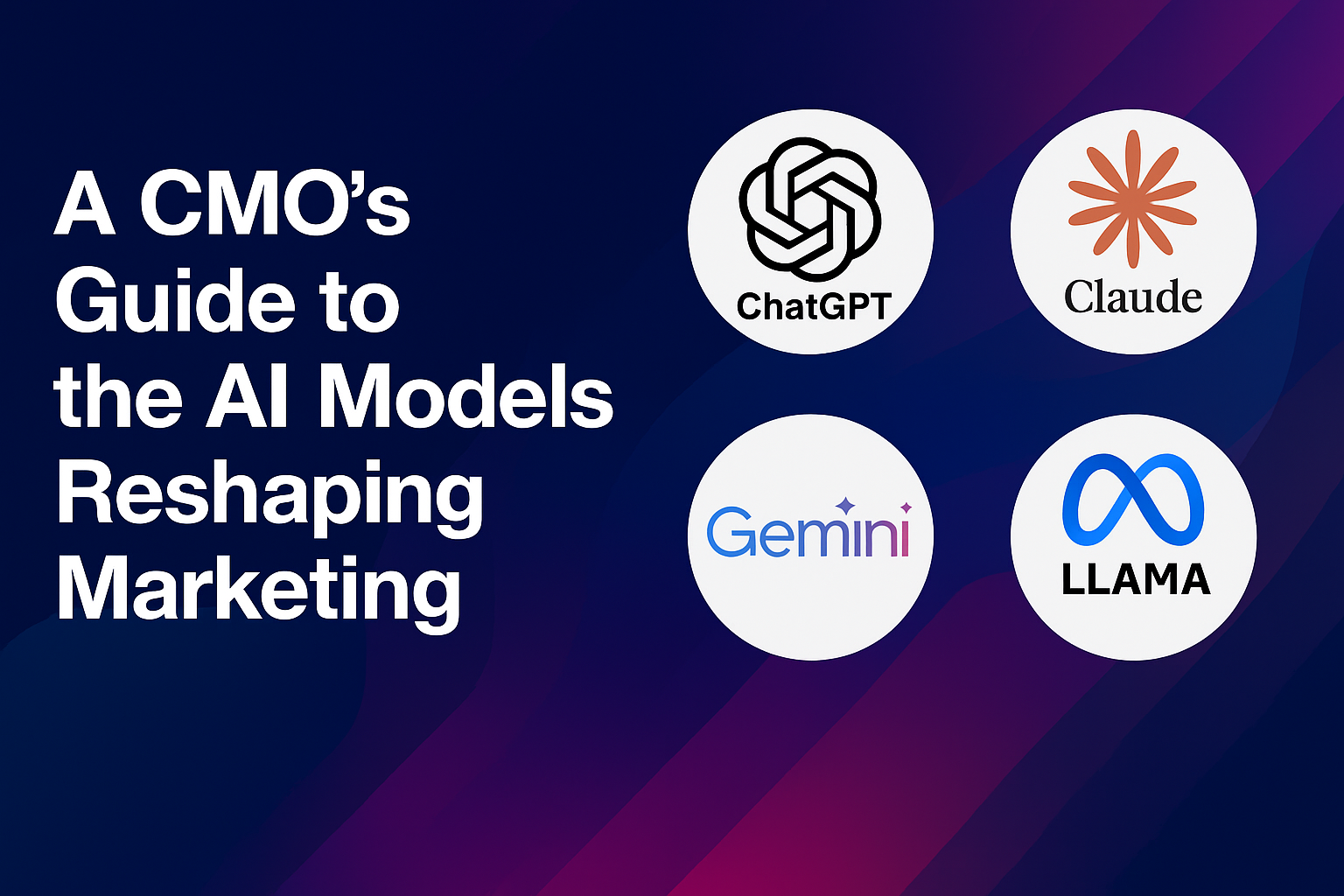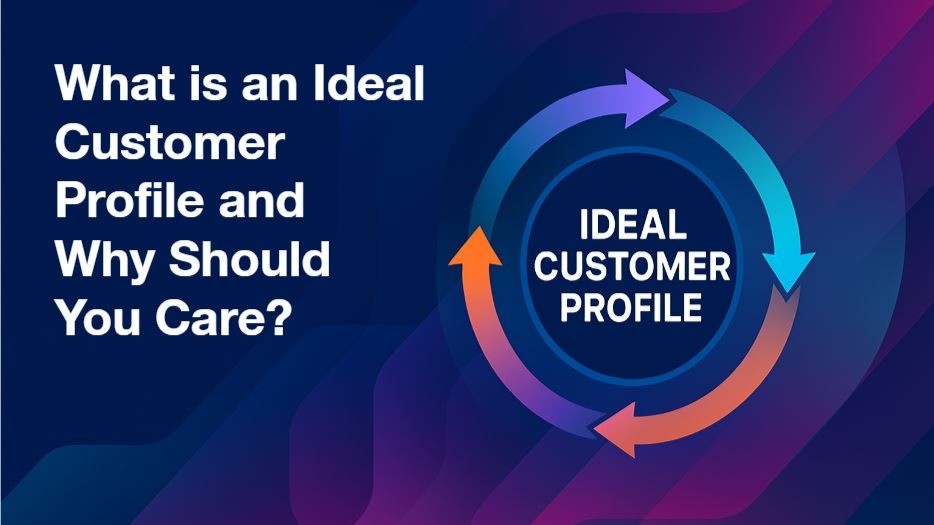Generative AI is advancing at a staggering pace, rapidly shifting from novelty to necessity in the modern marketing toolkit. For CMOs and marketing leaders, the classic mandate to “do more with less” now has entirely new dimensions. While I’m excited by AI’s potential to enhance speed, efficiency, and innovation, I’m equally focused on best understanding the direction and impact of AI for marketing, and helping to prioritize the highest-impact applications and use cases. To support that effort, this post compiles the most relevant and up-to-date AI marketing statistics for 2025—along with select, practical prompt templates designed to help you apply these insights directly to your own strategy, team structure, and tech stack.
Top Marketing AI Use Cases
- Top 3 marketing activities leveraging AI: Content Production (78.1%); Audience Segmentation and Targeting (42.7%); Data Analysis and Reporting (38.5%). [The State of Martech 2025, Chiefmartec and Martech Tribe, May 2025]
- Top 7 uses cases of AI by marketers: text generation, text refinement, image generation, video creation, personalized content, visual content, research. [The State of Marketing and AI Report, Canva, March 2025]
- Top 5 ways that companies are using generative AI:
- Data analysis and insights;
- Customer support;
- Knowledge management;
- Automating complex tasks; and
- Automating repetitive tasks.
- [Generative AI Adoption in the Enterprise, Writer, March 2025]
- Most used GenAI use cases: Content (69% – copy ideation); Content (62% – copy production); Management (63% – transcription, notes, summaries). [The State of Martech 2025, Chiefmartec and Martech Tribe, May 2025]
- Companies are seeing real benefits (from AI), such as retail marketers reporting 10% to 25% higher returns on ad spending from AI-powered campaigns. [For Marketers, Generative AI Moves from Novelty to Necessity, Bain & Company, February 2025]
- 54.2% of marketers are using built-in AI assistants (46% of these people access these assistants through their CRM). [The State of Martech 2025, Chiefmartec and Martech Tribe, May 2025]
- Top-ranked future applications for agentic AI in marketing: [The State of Marketing and AI Report, Canva, March 2025]
- “Tracking brand sentiment and flagging potential issues;
- Campaign monitoring, measurement and optimization; and
- Creating personalized content for different audience segments.”
- Top 3 use cases of LLM or agentic AI in marketing workflows or automations: Summarize Messages and Content (38.5%); Personalize Content or Messages (31.3%); Research Customers/Prospects to Enrich their Profile (25%). [The State of Martech 2025, Chiefmartec and Martech Tribe, May 2025]
- 36.5% of marketers are using a chatbot AI agent on their website. [The State of Martech 2025, Chiefmartec and Martech Tribe, May 2025]
- Generative AI Prompt Suggestion to Find the Best Use Cases for Your Team
- I’m a CMO exploring how to apply generative AI in my marketing organization. I don’t have a full AI strategy yet, but I want to start identifying high-impact opportunities. My goal is to find practical, low-risk ways to introduce generative AI while setting the foundation for broader adoption in the future. Please help me:
- Identify which parts of my marketing function are most likely to benefit from generative AI (e.g., content creation, campaign planning, data analysis, personalization, etc.)
- Evaluate those opportunities based on my team size, structure, and current marketing challenges (provide this input to your LLM, making it generic enough to protect confidentiality if you’re using an external system)
- Recommend easy-to-test use cases that don’t require heavy technical investment
- Suggest how I can assess the value or impact of early GenAI experiments
- Provide a simple “crawl-walk-run” adoption roadmap to help my team get started confidently
- I’m a CMO exploring how to apply generative AI in my marketing organization. I don’t have a full AI strategy yet, but I want to start identifying high-impact opportunities. My goal is to find practical, low-risk ways to introduce generative AI while setting the foundation for broader adoption in the future. Please help me:
AI Adoption Across Marketing Teams
- The global market revenues of AI usage in marketing are anticipated to reach approximately 47 billion U.S. dollars in 2025 and are projected to exceed 107 billion by 2028. [Statista, December, 2024]
- 77% of marketers classify their understanding of AI as Intermediate or Advanced. [2024 State of Marketing AI Report, Marketing AI Institute, July 2024]
- 67% of marketers say a lack of education and training is a top barrier to AI adoption. [2024 State of Marketing AI Report, Marketing AI Institute, July 2024]
- Top 5 challenges faced by marketers for AI adoption: limited customization, steep learning curve, difficulty integrating into existing workflows, lack of creativity and team resistance. [The State of Marketing and AI Report, Canva, March 2025]
- 72% of organizations have faced challenges during the generative AI adoption process: (top 5)
- Lack of generative AI skills/knowledge;
- Tension between IT teams and users;
- Employee retaliation and lack of trust;
- Security issues; and
- In-house development challenges.
- [Generative AI Adoption in the Enterprise, Writer, March 2025]
- 95% of the c-suite admit their company needs to improve the generative AI adoption process:
- Strategy 1: Formalize and invest in your generative AI plan;
- Strategy 2: Nurture your company’s AI champions;
- Strategy 3: Select the right vendors. (help you to – customize, prepare, test out with a pilot phase, measure impact, scale)”
- [Generative AI Adoption in the Enterprise, Writer, March 2025]
- Generative AI Prompt Suggestion to Develop a Plan for AI Adoption
- I’m a CMO looking to assess and address the challenges my marketing team may face in adopting AI tools and workflows.
- For context, here are some of my company details:
- Company vertical, range of size by employees and revenue, approximate size of marketing team and core functions within marketing: [e.g., software, 1,000-1,500 employees, $250-$500M revenue, 60-75 marketers across product marketing, brand, demand, ops, content]
- Current martech stack: [e.g., Marketo, HubSpot, Salesforce, GA4, Canva, ChatGPT]
- AI use today: [e.g., light use for content, no automation in ops].
- Please help me:
- Identify the top barriers to AI adoption specific to my organization (based on team size, structure, current martech stack, culture, etc.)
- Prioritize those challenges by urgency and impact
- Recommend a phased strategy to improve AI adoption across the marketing function
- Suggest key roles, processes, or pilots that could accelerate adoption
- Include tips for managing resistance, training needs, and measuring impact
AI’s Impact On Marketing Teams
- Top 4 areas where AI has most improved outcomes for marketers: increased efficiency, scale content output, cost reduction and enhanced personalization. (5+ hours saved per week by AI tools) [The State of AI in Marketing 2025, CoSchedule, January 2025]
- By 2028, three of five marketing roles or functions will be held by AI workers, shifting humans and their expertise toward strategy, creativity, and ethics and managing a blended human and AI workforce. [IDC FutureScape: Worldwide Chief Marketing Officer 2025 Predictions, IDC, November 2024]
- AI is giving marketers back 5+ full work weeks per year. [The State of Marketing and AI Report, Canva, March 2025]
- 80% of marketers say that reducing time spent on repetitive tasks is the top outcome they’re interested in achieving with AI. [2024 State of Marketing AI Report, Marketing AI Institute, July 2024]
- 78% of marketers believe AI will intelligently automate more than a quarter of their marketing tasks in 3 years. [2024 State of Marketing AI Report, Marketing AI Institute, July 2024]
- 47% of marketers surveyed say AI will eliminate more jobs than it creates. [2024 State of Marketing AI Report, Marketing AI Institute, July 2024]
- 74.6% of marketers indicate that AI has given their marketing strategy a competitive advantage. [The State of AI in Marketing 2025, CoSchedule, January 2025]
- The double-edged sword of AI: 77% of marketers say AI tools enhance creativity . . . 72% are concerned about AI leading to homogenized marketing and reduced human creativity. [The State of Marketing and AI Report, Canva, March 2025]
- Top 3 ways that AI has changed the job of the c-suite:
- “More time to focus on strategy;
- Ability to make data-driven decisions faster; and
- More time for innovation or exploring new business opportunities.”
- [Generative AI Adoption in the Enterprise, Writer, March 2025]
- Generative AI Prompt Suggestion to Evaluate the Impact of AI on Your Marketing Team
- I am the CMO of a mid-to-large organization and want to evaluate the impact of AI on our marketing team and company. Focus on actionable insights that support executive decision-making, team alignment, and long-term planning. Please provide:
- A structured framework to assess AI’s impact across:
- Team capabilities
- Workflow efficiencies
- Marketing outcomes
- Cross-functional and organizational alignment
- Guidance on how to diagnose strengths, gaps, and risks in AI adoption across content, campaigns, analytics, and operations
- A sample CMO-level dashboard to monitor AI adoption progress, including:
- Key performance categories (e.g., efficiency, quality, speed, ROI, adoption)
- Suggested KPIs or metrics per category
- Sample benchmark data or targets based on industry standards (B2B SaaS preferred, if available)
- A structured framework to assess AI’s impact across:
- I am the CMO of a mid-to-large organization and want to evaluate the impact of AI on our marketing team and company. Focus on actionable insights that support executive decision-making, team alignment, and long-term planning. Please provide:
AI in Content Creation
- 85% of marketers use AI tools for content creation. [The State of AI in Marketing 2025, CoSchedule, January 2025]
- 64% of marketers indicate that AI generated content is as successful or more successful than the content created without the use of AI. [The State of AI in Marketing 2025, CoSchedule, January 2025]
- Generative AI Prompt to ID and Assess the Highest Impact AI Areas for Content Creation
- I’m the CMO of a [insert company information without divulging confidential data] company with a [insert marketing team information] marketing team. I want to identify the highest-impact, lowest-effort areas where AI can enhance content creation across our marketing function. Please create a structured, scannable table that evaluates a wide range of real-world content use cases, including but not limited to blog creation, social media copy, SEO, video scripts, and content repurposing. Prioritize high-impact, low-effort use cases at the top of the table, and keep the output focused, tactical, and directly applicable to the type of company and marketing team previously described. The table should include the following columns:
- Content Function/Use Case – e.g., blog writing, social copy, video scripts, SEO optimization, repurposing, etc.
- Potential Impact Score (1–5) – How significantly AI can improve quality, speed, and reach. 5 = highest impact.
- Effort to Implement Score (1–5) – How hard it is to implement (skills, tech, change management). 1 = easiest.
- Recommended AI Tools/Technologies – Name relevant AI-powered platforms or applications.
- Team Members Involved – Who on the marketing team would own/execute (e.g., content marketer, SEO lead).
- Sample Process to Operationalize – A practical example of how this use case could be implemented in our workflows.
- I’m the CMO of a [insert company information without divulging confidential data] company with a [insert marketing team information] marketing team. I want to identify the highest-impact, lowest-effort areas where AI can enhance content creation across our marketing function. Please create a structured, scannable table that evaluates a wide range of real-world content use cases, including but not limited to blog creation, social media copy, SEO, video scripts, and content repurposing. Prioritize high-impact, low-effort use cases at the top of the table, and keep the output focused, tactical, and directly applicable to the type of company and marketing team previously described. The table should include the following columns:
AI’s Impact on Search Engine Optimization (SEO)
- By 2026, 65% of individuals will search for information and engage in dialogue with brands via GenAI, forcing marketers to build and optimize for humanized digital AI as the primary customer interface. [IDC FutureScape: Worldwide Chief Marketing Officer 2025 Predictions, IDC, November 2024]
- 72.1% of Google search users use the AI summarization now included in search results. [Are AI Chatbots Replacing Search Engines? AI vs Google, Orbit Media Studios, May 2025]
- 77% of people use Google (vs. an AI chat tool like ChatGPT) to get a quick answer, fact or definition; while 60% use Google (vs. an AI chat tool like ChatGPT) to get step-by-step instructions. [Are AI Chatbots Replacing Search Engines? AI vs Google, Orbit Media Studios, May 2025]
- 49% of people agree or strongly agree that AI chat tools will eventually replace traditional search engines. [Are AI Chatbots Replacing Search Engines? AI vs Google, Orbit Media Studios, May 2025]
- Wikipedia, Reddit, YouTube, Quora, LinkedIN, Gartner and Forbes are the top citation sources across ChatGPT, Google AI and Perplexity: [AI Platform Citation Patterns: How ChatGPT, Google AI Overviews, and Perplexity Source Information, Profound, June 2025]
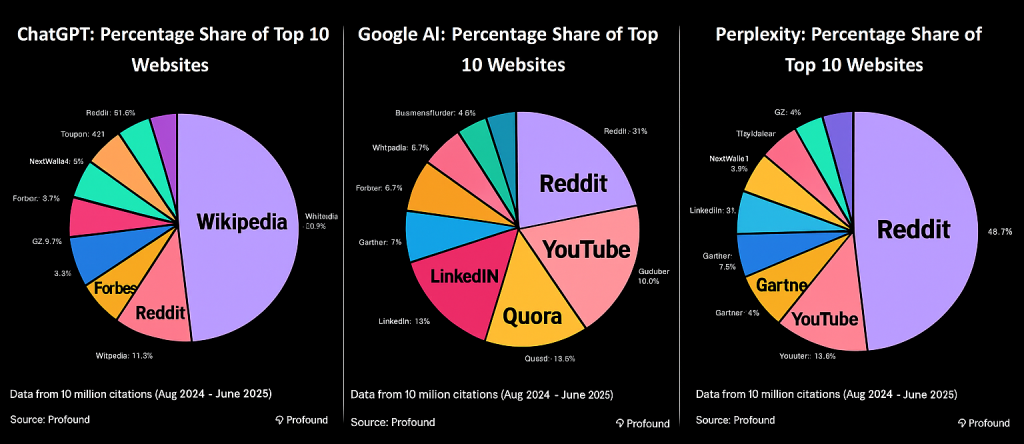
- 16.6% of websites in the top 20 Google search results have AI-detected content as of May 4, 2025, versus just 2.3% in 2020. [Amount of AI Content in Google Search Results – Ongoing Study, Originality.ai, May 2025]
- AI is automating 44.1% of key SEO tasks, including content creation and keyword research, boosting efficiency for users. [AI SEO Benchmark Report: Key Stats & Insights, Influencer Marketing Hub, May 2025]
- 42% of study participants indicate that AI’s impact has resulted in a decrease in organic traffic. [The Impact of AI-Powered Search on SEO: The Emergence of Answer Engine Optimization, ResearchGate, April 2025]
- Top implemented AEO (Answer Engine Optimization) strategies include:
- Conversational/long-form content (37.7%)
- Structured data markup (32%)
- Entity-based optimization (26.6%)
- [The Impact of AI-Powered Search on SEO: The Emergence of Answer Engine Optimization, ResearchGate, April 2025]
- 13.14% of all queries triggered AI Overviews in March 2025. That’s up from 6.49% in January 2025. . . . 88.1% of queries that trigger an AI Overview are informational.; [Semrush AI Overviews Study: What 2025 SEO Data Tells Us About Google’s Search Shift, Semrush, May 2025]
- By 2029, All Companies Will Spend Up to Five Times More on LLM Optimization than Search Optimization to Influence GenAI Systems and Raise the Priority and Ranking of Their Brands. [IDC FutureScape: Worldwide Chief Marketing Officer 2025 Predictions, IDC, November 2024]
AI Planning & Oversight
- 94% of marketers already have a dedicated AI budget. [The State of Marketing and AI Report, Canva, March 2025]
- 52% of marketers consistently track AI’s performance across campaigns. [The State of Marketing and AI Report, Canva, March 2025]
- 29% of marketers have copyright concerns over the use of AI in marketing. [The State of Marketing and AI Report, Canva, March 2025]
- 50% of companies have established firm guardrails around the use of AI in the workplace:
- Establish strict guardrails to encourage responsible use of AI tools;
- Implement an AI use case policy to safeguard brand integrity; and
- Regularly audit AI systems for bias and potential risks.
- [The State of Marketing and AI Report, Canva, March 2025]
- 58% of organizations do not have generative AI policies. [2024 State of Marketing AI Report, Marketing AI Institute, July 2024]
- 81% of marketing teams do not have an AI roadmap or don’t know if they have one. [2024 State of Marketing AI Report, Marketing AI Institute, July 2024]
- The top 3 biggest barriers to integrating AI into marketing include: data privacy concerns, lack of technical expertise and cost of implementation.. [The State of AI in Marketing 2025, CoSchedule, January 2025]
Marketing Technology
- 62.1% of companies are using more martech tools than two years ago. [The State of Martech 2025, Chiefmartec and Martech Tribe, May 2025]
- 6.3% of companies have fully integrated AI into their martech stack. (Now’s not the time to be complacent. I’m guessing that this number will increase rapidly in the next 6-12 months) [The State of Martech 2025, Chiefmartec and Martech Tribe, May 2025]
- NOT A STAT, but no one should miss this best-in-class list of martech stacks pulled together by Scott Brinker and Frans Riemersma [2025 Stackie Awards, Chiefmartec and Martech Tribe, May 2025]
- 70.6% of marketers indicate that some or most of their existing tools have added AI features or functions in the last year. [The State of AI in Marketing 2025, CoSchedule, January 2025]
- Generative AI market share of leading vendors: [Source: IOT Analytics, The leading generative AI companies, March 2025]
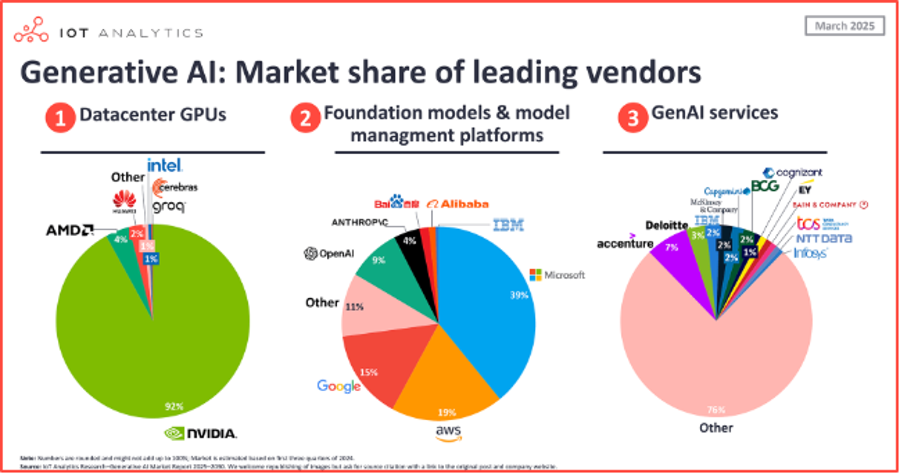
As AI continues to reshape the marketing landscape at breakneck speed, staying current isn’t optional — it’s a competitive advantage. This post will be updated regularly as new research and use cases emerge, so bookmark it and check back often. If you come across new reports or data worth including, feel free to send them my way (michael@fractionalcxos.com) — I’m always looking to expand this resource. And if you’d like to get updates when this post is refreshed or receive exclusive AI strategy prompts and insights, please subscribe to our newsletter.
